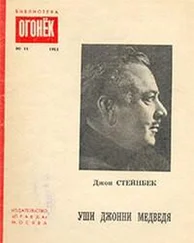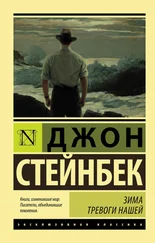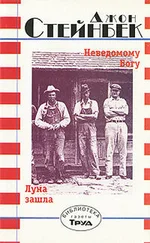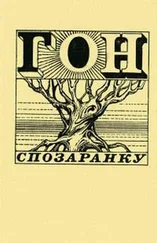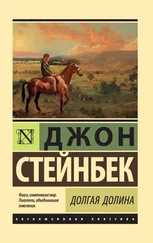Джон Стейнбек - Cup of Gold [Золотая чаша]
Здесь есть возможность читать онлайн «Джон Стейнбек - Cup of Gold [Золотая чаша]» — ознакомительный отрывок электронной книги совершенно бесплатно, а после прочтения отрывка купить полную версию. В некоторых случаях можно слушать аудио, скачать через торрент в формате fb2 и присутствует краткое содержание. Год выпуска: 1929, Жанр: Прочие приключения, на английском языке. Описание произведения, (предисловие) а так же отзывы посетителей доступны на портале библиотеки ЛибКат.
- Название:Cup of Gold [Золотая чаша]
- Автор:
- Жанр:
- Год:1929
- ISBN:нет данных
- Рейтинг книги:5 / 5. Голосов: 1
-
Избранное:Добавить в избранное
- Отзывы:
-
Ваша оценка:
- 100
- 1
- 2
- 3
- 4
- 5
Cup of Gold [Золотая чаша]: краткое содержание, описание и аннотация
Предлагаем к чтению аннотацию, описание, краткое содержание или предисловие (зависит от того, что написал сам автор книги «Cup of Gold [Золотая чаша]»). Если вы не нашли необходимую информацию о книге — напишите в комментариях, мы постараемся отыскать её.
Cup of Gold [Золотая чаша] — читать онлайн ознакомительный отрывок
Ниже представлен текст книги, разбитый по страницам. Система сохранения места последней прочитанной страницы, позволяет с удобством читать онлайн бесплатно книгу «Cup of Gold [Золотая чаша]», без необходимости каждый раз заново искать на чём Вы остановились. Поставьте закладку, и сможете в любой момент перейти на страницу, на которой закончили чтение.
Интервал:
Закладка:
The boats, in a long line, edged up the stream. The English shouted tuneless chanteys, swaying their bodies to preserve the rhythm; the French sang softly of the 1ittle loves they might have had; and the Cimarones and blacks chattered their endless monologues directed at no one in particular.
And Chagres twisted on ahead in loops and tremendous horseshoe turns. The yellow water, like a frightened, leprous woman, timidly caressed the hulls. On this Chagres you might pole your boat all day, and at night make your camp not half a mile by straight line from the starting place. It was a sluggish, apathetic river of many shallows where the bright sand glittered in the sun. Chagres was a dilettante in the eternal and understood business of rivers-that of getting to the ocean with as little bother and effort as possible. Chagres dreamed about over the country, seemingly reluctant to lose its lazy individuality in the worried sea.
After a time the boats came to a land where the thick jungle rolled to the river's edge and stopped in a curving crest, like a frozen green wave. There were spotted tigers cruising along through the trees, watching the men with a sad curiosity. Now and then a great snake slipped from the warm log where it had been dozing in the sun, and floated in the water, rearing up its head to see this unheard of procession. Whole clans of excited monkeys dashed about among the vines, pretending to hate disturbance.
They howled their indignation and hurled leaves and twigs at the boats. Fourteen hundred outlandish beings had invaded sacred Mother Jungle; the mangiest monkey on earth had, at least, his right of protest.
The day's heat had come like a breath of fever, heavy and dully bewildering. The songs from the barges thickened and died as though hot blankets had been thrown over the men. The buccaneers sat lifelessly on their benches. But the straining Indians poled on with a steady, swinging motion. The muscles slipped along their fine arms, coiled and uncoiled about their shoulders like restless serpents. Within their brooding brains was a reverie of slaughter, a delightful blood dream. "On!" said their brains. "On! Ugh! the battle is two strides nearer. On! On! Ugh! Panama; the savannas of blood are two strides nearer."
The long line of boats writhed up the river like a tremendous jointed snake.
The long ardent day fell back toward evening, and no human had been seen along the river banks. This was a serious matter, for there was no food in the barges. There was no room for food. Every inch was needed for men and weapons. As it was, the water washed over the low decks of the artillery rafts. It was well known that many plantations bordered the river, whereat a hungry army might refresh itself, and this knowledge had sent the pirates foodless toward Panama. All day they had watched for the plantation and had seen nothing but the green tangled jungle.
In the evening, the first boat came abreast of a landing of sticks. A languid coil of smoke rose from behind a planted row of tall trees. With loud cries of joy, the buccaneers leaped from their boats and waded to the shore. Curses and despair; the buildings were burned and deserted. This little smoke drifted from the black heap of what had been a granary, in which no single grain remained for the men to eat. Deep tracks led off into the wet jungle to show where the cattle had been driven away, but the tracks were two days old.
The hungry men went back to their boats. Ah, well; they must go hungry today. Hunger was a part of war, a matter to be expected and endured. Tomorrow, surely, they would come on houses where wine was stored, cold and delicious; corrals where fat cows nodded stupidly, waiting to be slaughtered. A buccaneer-a true buccaneer-would sell out his life for a cup of sour wine or a bit of converse with one of the brown women of half-Spain. These were the joys of life, and a fair thing it was if the man were stabbed before he finished his drink or his conversation; but hunger-Well, tomorrow there would be food surely.
But again the sun arose, a white, fevered ulcer in the sky. There was the river of mad turnings, and along its banks deserted farms, and no food at all. News of this invasion had swept along before them like an appalling message of pestilence. No man or animal remained to greet the buccaneers.
On the third day they found a number of tough green cow hides, and they beat them between stones to soften them for eating. Some of the men had eaten half their belts. Once a little burned maize was discovered in a still burning granary, and several of the pirates died in agony from gorging on it.
The men hunted in the jungle, searched through the trees for any living thing which might be eaten. Even the cats and monkeys seemed to be leagued with Spain. The jungle was silent and creatureless now. No unit of life was left save the flying insects. Now and then a snake was caught and roasted, while its captor sullenly guarded his supper. A few mice came into the pirates' hands, but these were bolted on the spot for fear of thievery.
After four days of traveling, the river grew too shallow for the boats. The cannons were brought ashore to be dragged by manpower along a narrow path. The buccaneers straggled out in an unkempt column, while ahead of them a swarm of busy Indians, drawing energy from their sanguinary dream, hacked and slashed out the trail through the jungle with their heavy knives. A few small groups of fleeing Spaniards were seen, and now and again small bands of Spanish Indians flushed from the thickets like coveys of frightened quail, but no enemy paused long enough to give fight. Once, beside the trail, a prepared place of ambush was discovered; a wall of earth, and the ashes of many campfires. It was deserted. Terror had seized the soldiers sent to fight, and they had run away.
Now the men were dragging themselves nearer and nearer to Panama. Their enthusiasm for the conquest was gone; they cursed their leader for his failure to bring food; they were drawn farther and farther by the sheer force of the example of Captain Morgan.
From the first he had led them, but now, at the head of the exhausted troops, Henry Morgan himself was beginning to doubt whether he wished very greatly to go to Panama. He tried to remember the force which had started him on his way, the magnet of unseen beauty. La Santa Roja had faded in his imagination as his hunger grew. He could not clearly remember his desire. But even though this desire should desert him utterly, he must go on. One failure, one moment of indecision, would scatter his successes like pigeons.
Coeur de Gris was beside him as he had been from the beginning, a haggard Coeur de Gris now, who lurched a little as he walked. Captain Morgan looked with pity and pride at his lieutenant. He saw the eyes like shallow crystal, and a wild light in them as of approaching madness. Captain Morgan felt less lonely with the young man by his side. He knew that Coeur de Gris was grown to be a part of him.
The sun's heat was falling from the heavens like a burning rain. It struck the ground and then slowly rose again, burdened with dampness and the nauseous odor of rotting leaves and roots. Once Coeur de Gris was driven to his knees by the heat, but immediately he rose to trudge onward. Henry Morgan saw his staggering walk, and glanced at the trail ahead with indecision.
"Perhaps we should be resting here," he said. "The men are exhausted."
"But no. We must go on and go on," Coeur de Gris replied. "If we stop here, the men will only be weaker when we start again."
Henry Morgan mused: "I wonder why you are so avid in my mission. You move forward when even I begin to doubt myself. What is it that you expect to find in Panama, Coeur de Gris?"
"I expect to find nothing," the young man said. "Are you trying to trap me into a statement of disloyalty?
Читать дальшеИнтервал:
Закладка:
Похожие книги на «Cup of Gold [Золотая чаша]»
Представляем Вашему вниманию похожие книги на «Cup of Gold [Золотая чаша]» списком для выбора. Мы отобрали схожую по названию и смыслу литературу в надежде предоставить читателям больше вариантов отыскать новые, интересные, ещё непрочитанные произведения.
Обсуждение, отзывы о книге «Cup of Gold [Золотая чаша]» и просто собственные мнения читателей. Оставьте ваши комментарии, напишите, что Вы думаете о произведении, его смысле или главных героях. Укажите что конкретно понравилось, а что нет, и почему Вы так считаете.
![Джон Стейнбек Cup of Gold [Золотая чаша] обложка книги](/books/181372/dzhon-stejnbek-cup-of-gold-zolotaya-chasha-cover.webp)
